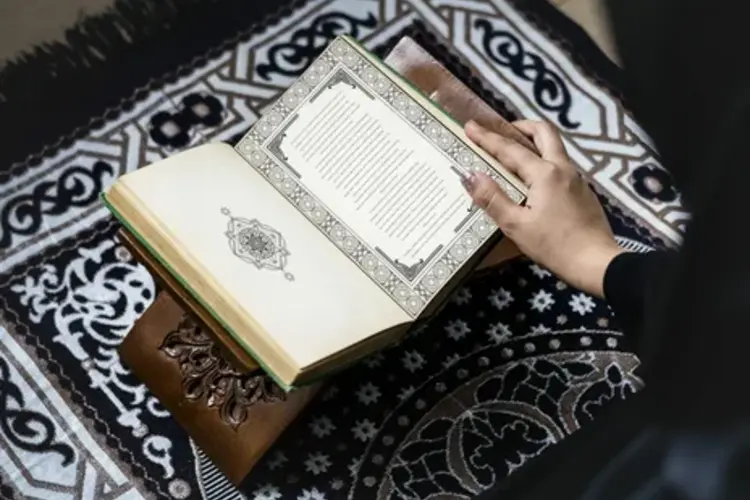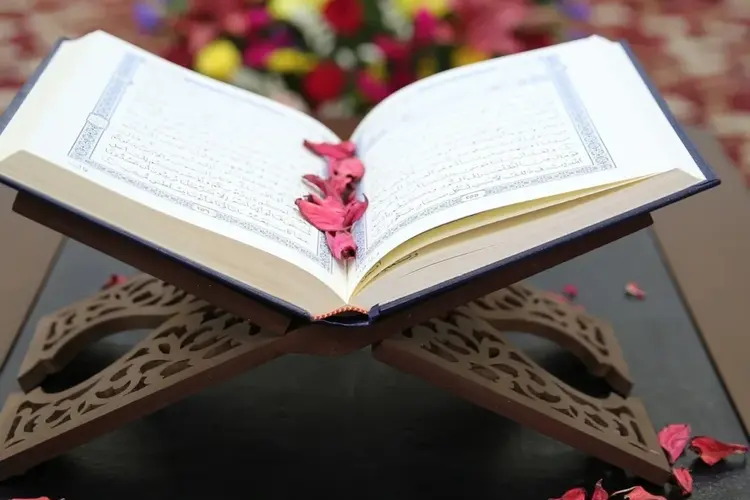The question of “Can The Quran be Translated?” is both complex and deeply significant. The Quran, revered as the literal word of God in Islam, is intricately tied to the Arabic language, which is believed to embody its divine essence.
While translations can offer interpretations of the Quran’s meanings, they often fall short of capturing its full spiritual and linguistic richness.
Sabil Al Quran, a prominent organization dedicated to Quranic education, emphasizes the value of studying the Quran in its original Arabic to fully grasp its unique rhythms and profound messages.
This highlights the ongoing debate about the limitations of translation and the importance of accessing the Quran in its most authentic form.
Can The Quran be Translated Into English?
Muslim scholars argue that the Quran is untranslatable, a view that contrasts with the Christian belief that the Bible maintains its essence in any language. As Professor Murata and Chittick note, “It is an Islamic dogma that the Quran cannot be translated.
Allah revealed it in Arabic, and the Arabic language itself embodies His words.” The Quran’s unique recitation and rhythm have a profound effect on the human soul.
In 1930, Marmaduke Pickthall’s translation of the Quran was deemed an interpretation by Shaykh Al-Marghenani of Al-Azhar University. This reflects the idea that while translations can convey the Quran’s message, they are not true translations but rather approximations.
Professor Hussein Abdul Raof emphasized that all Quran translations are inherently incomplete and only approximate the Quran’s meaning.
Despite this, translating the Quran’s message into other languages remains valuable. Shah Wali Allah of Dehli initiated the translation movement with his Persian translation in the 18th century, and his grandsons later translated the Quran into Urdu.
Robertus Retenesis first translated the Quran into Latin in 1143, and later translations into English, including those by Alexander Ross and George Sale, have made the Quran accessible to English speakers.
Today, numerous translations of the Quran exist in various languages, including around 100 in English, reflecting its widespread reach.

What is the Best English Translation of The Quran?
The question “Can the Quran be Translated?” explores the complexities of translating this sacred text. Choosing the best English translation of the Quran can significantly impact your understanding, given the various translations available.
Each translation offers unique insights and interpretations, making it essential to select one that aligns with your needs for a deeper connection to the Quran’s teachings.
The Meaning of the Glorious Quran by Muhammad Marmaduke Pickthall (1930)
Pickthall’s translation is one of the earliest English versions, renowned for its accuracy and literary style. It preserves the dignity of the original Arabic text and offers a classic, early 20th-century English rendition.
The Holy Quran: Text, Translation and Commentary by Abdullah Yusuf Ali (1934)
Yusuf Ali’s translation is widely popular for its comprehensive footnotes and commentary, providing historical and cultural context. Its poetic style and accessible language make it suitable for a broad audience.
The Noble Quran by Muhammad Muhsin Khan and Muhammad Taqi-ud-Din Al-Hilali (1996)
This translation is noted for its detailed explanations and incorporation of Hadith and Tafsir. It offers a thorough understanding of the Quran’s teachings with parenthetical explanations for clarity.
The Qur’an: A New Translation by M.A.S. Abdel Haleem (2004)
Abdel Haleem’s translation is praised for its clarity and modern English, maintaining the Quran’s rhythm and beauty. It is an excellent choice for newcomers to Islam or those seeking a contemporary rendition.
The Clear Quran by Dr. Mustafa Khattab (2016)
Khattab’s translation uses simple, modern language to make the Quran easily understandable. It is designed for native English speakers seeking a straightforward and accessible version.
The Message of the Qur’an by Muhammad Asad (1980)
Asad’s translation is known for its intellectual depth and modern language, featuring extensive commentary and footnotes. It offers a scholarly perspective on the Quranic text.
The Quran: A Translation by A.J. Arberry (1955)
Arberry’s translation is celebrated for capturing the Quran’s poetic essence while remaining faithful to the original Arabic. It is recommended for those who appreciate the literary and artistic dimensions of the Quran.
The Quran: The First American Version by T.B. Irving (1985)
Irving’s translation is tailored for American readers, written in modern American English. It focuses on clarity and relatability for a North American audience.
The Holy Quran with English Translation and Commentary by Allamah Nooruddin (1917)
Nooruddin’s early translation is valued for its comprehensive commentary and classical Islamic scholarship. It balances the beauty of the Arabic text with insightful English explanations.
What Is The Importance Of Quran Translations?
Quran translations are crucial for understanding the sacred text, especially since only about 20% of Muslims speak Arabic. These translations make the Quran accessible to the majority of Muslims worldwide, who rely on them for spiritual guidance and comprehension.
The translation of the Quran into various languages began in the 7th century with Salman Al-Farsi’s translation of the opening verse into Persian.
By the 10th and 12th centuries, Persian translations were further developed by Islamic scholars. As of 2010, the Quran has been translated into 112 languages, although not all translations are certified due to variations in translators’ backgrounds.
To ensure accuracy and faithfulness to the original text, many Muslim organizations are working to produce and update translations under the guidance of expert scholars.
Why aren’t some Quran translations authenticated?
Before purchasing a Quran translation, it’s essential to ensure that it has been thoroughly revised and verified by Muslim scholars. But what causes some Quran translations to lack verification from the Muslim community?
Arabic words can hold various meanings depending on the context during Quran recitation, and subtle changes, such as didactical symbols, can significantly alter a word’s meaning. This complexity can lead to inaccuracies in many translations.
The Quran is traditionally recited in Arabic during prayers, and any translation should ideally include a precise transliteration. However, this is often neglected.
Translating the Quran requires a team of Islamic experts fluent in Classical Arabic, Islamic studies, and the target language. The Quran’s Classical Arabic differs from Modern Standard Arabic, with variations in structure and vocabulary. Therefore, it is not a task for just any native Arabic speaker.
Furthermore, understanding the Quran requires knowledge of the historical context of early Muslim culture. Translators should also be well-versed in Hadith and Sirah, as these narrations and sayings of Prophet Muhammad are intricately connected to the Quran.
For those looking to deepen their understanding of the Quran, enrolling in an online ijazah course is an excellent way to ensure accurate recitation and comprehension.
Conclusion
In conclusion, the question “Can the Quran be translated?” is both profound and complex. While translations can convey the general meaning of the Quran, they often fall short of capturing the full depth and beauty of the original Arabic text.
Understanding the Quran in its true essence requires a deep connection with its language. If you’re eager to explore the Quran’s teachings in their original form, connect with Sabil Al Quran today.
Our team is here to guide you through the journey of learning and understanding Quranic Arabic. Reach out to us now to begin your spiritual and linguistic journey.
FAQS About Can The Quran Be Translated?
Is it permissible to translate the Quran?
According to Islamic doctrine, the Quran is a divine revelation uniquely expressed in Arabic, thus necessitating its recitation in the original language. Translations, as human endeavors, are unable to fully capture the Quran’s sacred and inimitable qualities.
Is it OK to Read Quran with translation?
Despite the sacred nature of the Arabic Quran, there’s a widespread consensus that reading translations can contribute to spiritual growth and a richer comprehension of Islamic teachings.
Can I read a translated Quran without wudu?
Wudu is required to touch or read the Arabic text of the Quran. Wudu is not required to read a translated version of the Quran. This is based on the consensus of the majority of Islamic scholars.


